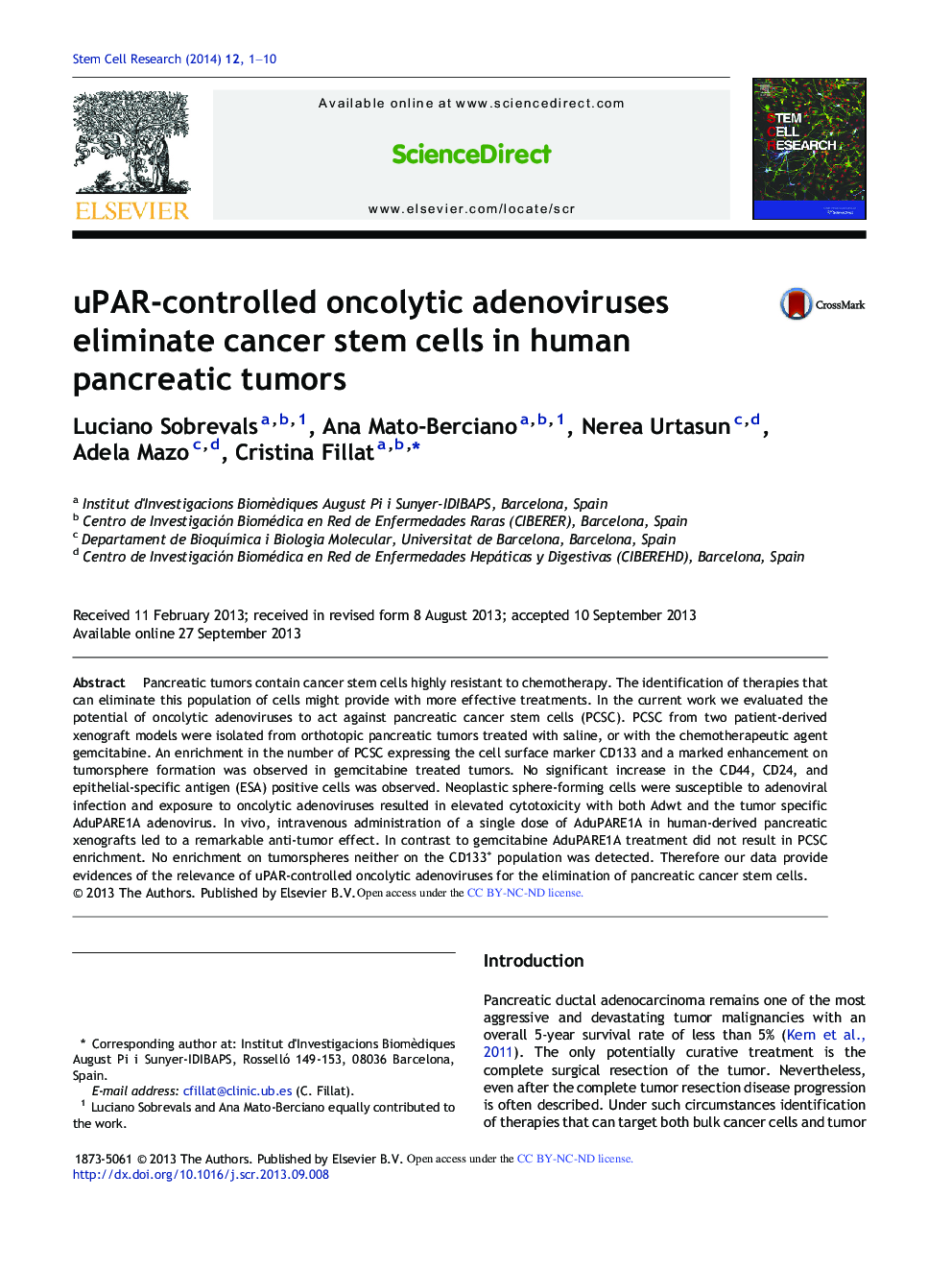| Article ID | Journal | Published Year | Pages | File Type |
|---|---|---|---|---|
| 2094577 | Stem Cell Research | 2014 | 10 Pages |
•Pancreatic cancer stem cells are sensitive to adenoviral oncolysis.•AduPARE1A triggers anti-tumor effects in human derived pancreatic xenografts.•In contrast to gemcitabine, AduPARE1A treatment did not enrich in PCSC.
Pancreatic tumors contain cancer stem cells highly resistant to chemotherapy. The identification of therapies that can eliminate this population of cells might provide with more effective treatments. In the current work we evaluated the potential of oncolytic adenoviruses to act against pancreatic cancer stem cells (PCSC). PCSC from two patient-derived xenograft models were isolated from orthotopic pancreatic tumors treated with saline, or with the chemotherapeutic agent gemcitabine. An enrichment in the number of PCSC expressing the cell surface marker CD133 and a marked enhancement on tumorsphere formation was observed in gemcitabine treated tumors. No significant increase in the CD44, CD24, and epithelial-specific antigen (ESA) positive cells was observed. Neoplastic sphere-forming cells were susceptible to adenoviral infection and exposure to oncolytic adenoviruses resulted in elevated cytotoxicity with both Adwt and the tumor specific AduPARE1A adenovirus. In vivo, intravenous administration of a single dose of AduPARE1A in human-derived pancreatic xenografts led to a remarkable anti-tumor effect. In contrast to gemcitabine AduPARE1A treatment did not result in PCSC enrichment. No enrichment on tumorspheres neither on the CD133+ population was detected. Therefore our data provide evidences of the relevance of uPAR-controlled oncolytic adenoviruses for the elimination of pancreatic cancer stem cells.
